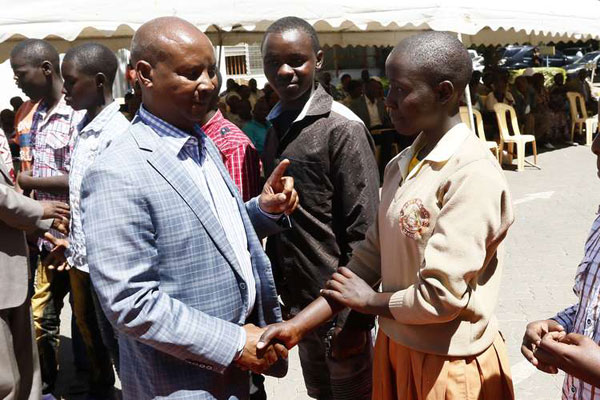Share this
United Nations High Commissioner for Refugees Antonio Guterres addressing journalists at Inter-continental hotel in Nairobi on May 6, 2015. Guterres, 67, who for a decade served as the UNHCR boss, was appointed by the UN General Assembly on October 13 for a five-year term. PHOTO | EVANS HABIL | NATION MEDIA GROUP
Africa waits to see if new UN chief will address continent’s problems
Among the significant events at the beginning of this year was the assumption of the UN secretary-general’s office by former Portuguese Prime Minister Antonio Guterres.
Guterres, 67, who for a decade served as the UNHCR boss, was appointed by the UN General Assembly on October 13 for a five-year term.
The question remains whether he will serve the interests of all UN members rather than being a crony of superpowers.
The UN chief has challenges ahead, including the situation in Syria, climate change and African wars.
That Guterres is determined to have an impact on the most salient global issues is in no doubt.
Indeed, it was heartening to hear him on January 1 pledge to make 2017 a year of peace.
Ban Ki-moon’s performance was on many accounts lacklustre.
High on rhetoric and low on achievements, his tenure left few footprints in Africa’s troubled regions.
He will, however, be remembered for calling for reforms at the UN, alongside African leaders who have complained of lopsided policies that govern the agency.
In fact, as matters stand, there are far too many unresolved crises in Africa in which the UN presence was expected to make a difference.
Matters were made worse for Ban by scandals surrounding UN personnel.
There were claims of sexual abuse against peacekeepers in the Central African Republic.
UN troops were also accused of failing to protect civilians in Darfur and South Sudan.
FAILURES
Its forces in South Sudan were accused of abandoning their posts and allowing government troops to rape, maim and kill.
There is no evidence that crises in the DR Congo, the Central African Republic and South Sudan will be resolved soon.
The fabled rhetoric of UN secretaries-general continues to be heard around the world. More leaders dismiss the organisation’s directives.
A case in point is Burundi, whose President Pierre Nkurunziza has more or less told the UN and the African Union to go to hell.
Regarding the situation in The Gambia, an avalanche of rhetoric and threats has, predictably, been forthcoming from the UN and the AU.
It, however, remains to be seen if the threats issued against Yahya Jammeh, the headstrong leader of that country, will be carried out.
As the January 19 deadline for the handover approaches, the tyrant has been doing everything to hold onto power, including seeking the support of religious leaders.
Jammeh recently reportedly summoned 67 Gambian Islamic and Christian leaders to State House in a bid to gain their support.
Unfortunately for him, the religious leaders insisted that he steps down. As expected, the despot viewed the advice by clerics as betrayal.
ciugumwagiru@yahoo.co.uk
Source: Daily Nation




















